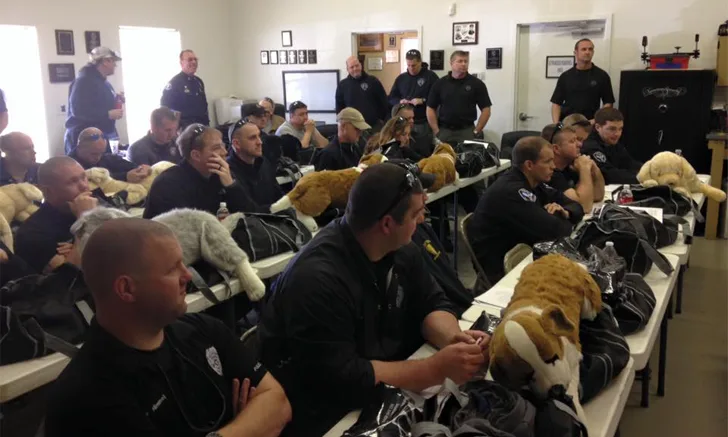
A group of police officers and first responders learn life-saving first aid techniques for their dogs.
Narcan and endotracheal tubes aren’t found in most first aid kits for dogs. But having them on hand could save the life of a working dog on duty.
Lisa Booth, DVM and practice owner in Westville, Indiana, builds customized first aid kits for working dogs and carves time out of her regular clinic schedule to teach handlers around the country how to use these supplies.
Filling the First Aid Knowledge Gap
Early in her career, when Dr. Booth first started treating working dogs, she was surprised to learn that most handlers did not get first aid training for their dogs. Now many classes are available, she said, but at that time there was a huge void of information. So, Dr. Booth used her experience in emergency medicine and general practice to start filling that gap.
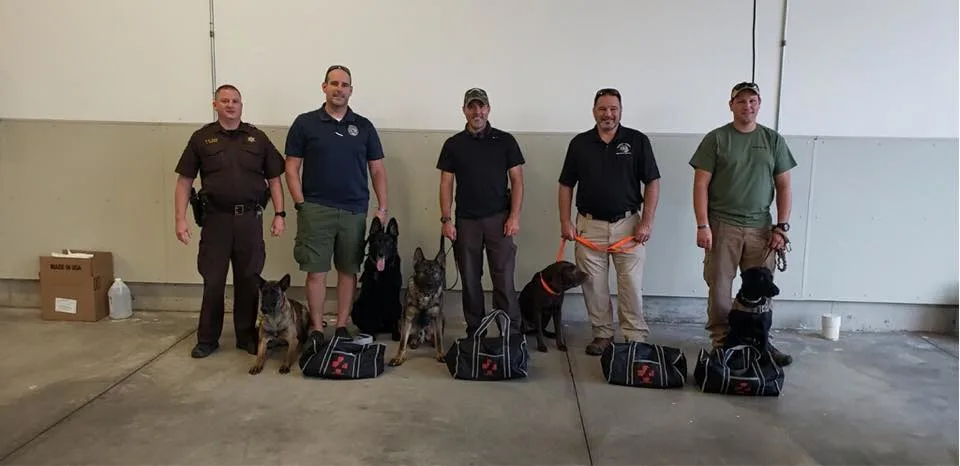
Kits for K9’s are the way Dr. Booth gives back to the community and the animals. “There's a piece of me that's actually doing 100% good, 100% of the time,” she said.
“I’m super passionate about helping these canines,” said Dr. Booth, a 2000 graduate of Purdue Veterinary School. “They do so much to save our lives, not only in the military but on the home front, too.”
She started offering free CPR and trauma first aid classes to fire departments, K9 unit officers, dog handlers for the military, prisons, or search and rescue teams. As Dr. Booth learned more about situations the working dogs encountered, she spent less time teaching CPR and more on how to check a dog’s vitals—respiration, heart rate, gum color—and when to remove the dog from the scene. She drills on how to intubate, in the event a dog gets stabbed or shot.
“I’m not teaching them to be a veterinarian. I'm not teaching them to treat their dog,” Dr. Booth emphasized. “I just want them to be able to assess their dog and get them to the veterinarian alive.”
A First Aid Kit That Works
When officers and handlers at Dr. Booth’s workshops asked about getting their own first aid kits, Dr. Booth didn’t have any. So, she created what they needed.
Each kit contains hundreds of dollars’ worth of supplies including endotracheal tubes, blood clotting gel, and needle-nose pliers (for removing remnants of broken nails), along with standard items such as hydrogen peroxide, antibiotic ointment, bandaging material, a digital thermometer, and diphenhydramine.
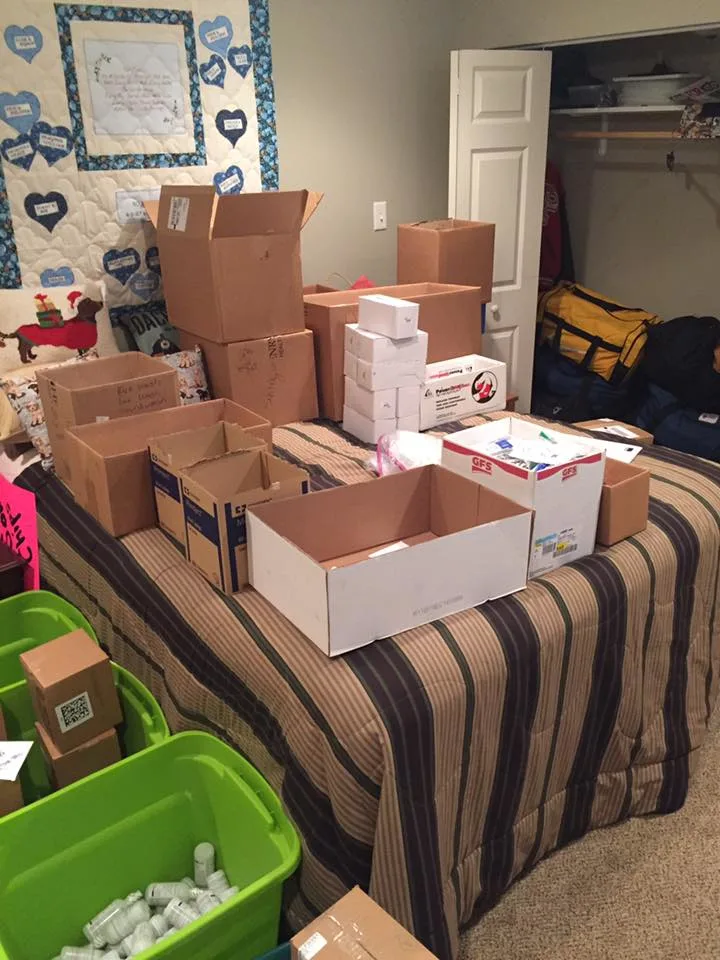
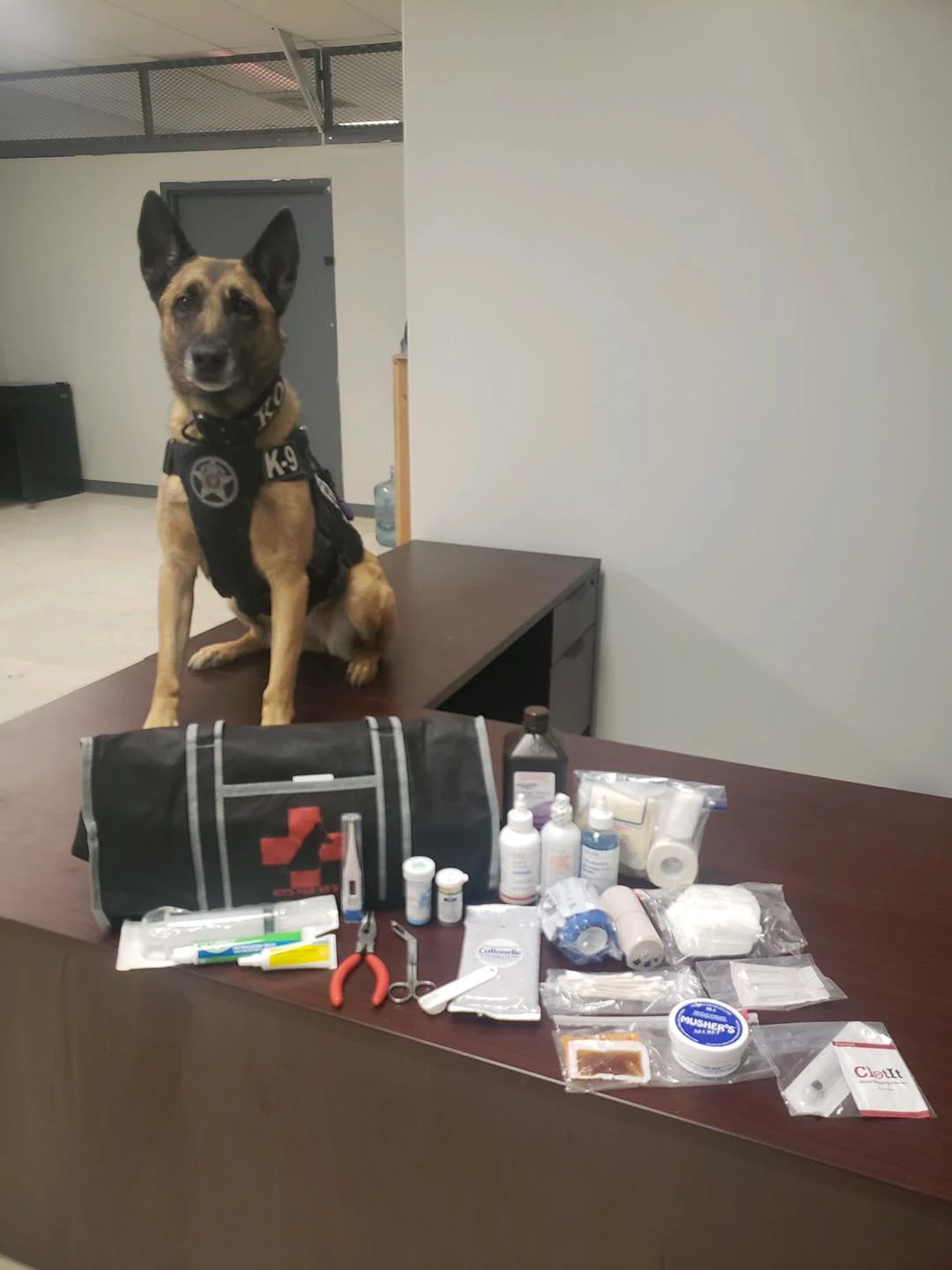
Once a year, Dr. Booth does all her fundraising —from bake sales to partnering with area restaurants that agree to donate a percentage of proceeds on a specific day. Then she buys all the supplies and throws a “first-aid kit party” in her basement to assemble all the kits.
Dr. Booth also includes a tick removal tool, because working dogs often track through woods “and people have all kinds of theories on how to remove ticks,” she noted. To stock these specialized kits, Dr. Booth created a nonprofit called Kits for K9’s. Now, she hands out about 150 kits annually at her trauma-first aid training classes.
“I feel very proud that I've not just handed them a kit,” said Dr. Booth, who said you can’t get one of her kits without taking a class. “I've handed them the kit with the tools to do what they need to use it for.”
Powered by Volunteer Support
When Dr. Booth started Kits for K9’s about 10 years ago, she had no experience setting up a nonprofit. She turned to area colleges for help. Students at Valparaiso University Law School volunteered to do all the paperwork and set up a tax ID number, while the nonprofit’s logo and marketing plans were created by Purdue University Northwest students. The Purdue students even held a fundraiser for part of their academic credit. Every donation, whether money or supplies, only goes into building the kits.
Last year, Kits for K9’s raised just over $6,000, and every dollar went directly into supplies for kits. In 2022, Dr. Booth gave out 151 kits and held 21 classes for first responders, working dog handlers, and boarding facilities.
I’m not teaching them to be a veterinarian. I just want them to be able to assess their dog and get them to the veterinarian alive.
The first aid classes could be Dr. Booth’s full-time job, but she remains dedicated to Hero Pet Animal Hospital, the small animal practice she designed and opened in July 2021, which she co-founded with her husband. And she would miss practicing medicine. “I was one of those kids who never wanted to be anything but a veterinarian,” she said.
Although some days in practice are hard, Dr. Booth believes that adding something really enjoyable to your everyday life can be the “little silver lining" for those tough days. “There is no perfect job,” she tells externship students or other veterinarians that come through the practice. “But there's a perfect career. You're in the perfect career. And you’ve got to believe that.”
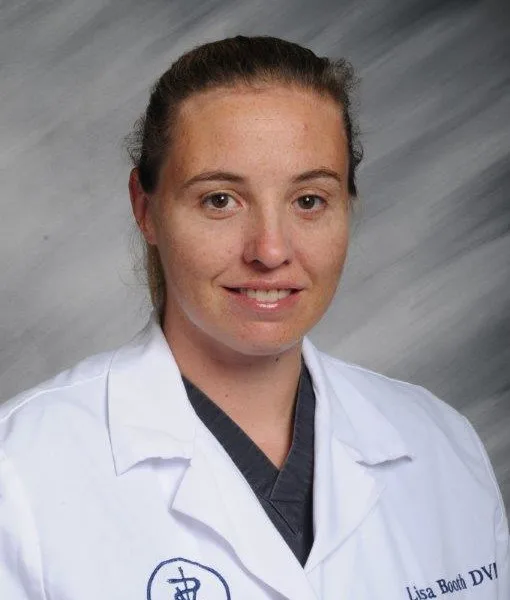
"I feel empowered after I do a class with the officers,” Dr. Booth said. “I just feel like I'm doing good.”